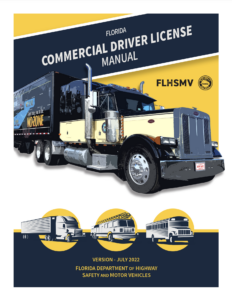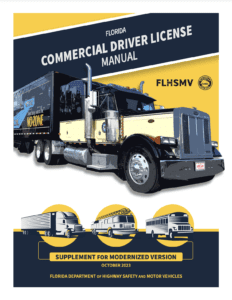Steps to Start a Successful Trucking Company
If you are a truck driver and are considering starting your own trucking company, it’s important to understand that the industry is highly competitive. Many trucking companies are started each year only to fail later. There are some steps you can take to increase the chances that your business will be a success, however. Here are some tips to help you get started in the right way.
1. Choose the Right Market and Focus
The first step you should take is to conduct a market analysis in the area in which you plan to operate. You need to understand the competitive landscape and determine whether it is a good place to begin your operations or if you should instead choose to open your business in a different location. You should also consider various niche areas within the trucking industry that might not be as competitive. Choosing to operate in one of these focus areas can help your business to fill a gap in the industry and increase the chances of success. Your niche and market will also help you decide your rates, freight lanes, and your equipment. Carrier fleets are typically categorized by load types, so understanding the particular niche in which your company will operate can help you determine the trucks and equipment to lease or purchase.
When you choose to haul niche loads, you can benefit from year-round work, added flexibility, and reduced competition. Since various markets have differing factors, it’s important to begin with an in-depth market analysis before you decide what to focus your business on.
2. Create a Business Plan
Before you lease a fleet of trucks or open your business, you need to create a thorough business plan that includes a clear strategy and achievable goals. Include the following types of information in your plan:
• The market in which you will operate
• Your company’s focus or niche
• Competitors in the market
• Types of equipment and vehicles that need to be leased or purchased
• Types of loads you will transport and how and where you will find them
• The employees you will need to hire
• Applicable tariffs
• How you will charge, invoice, and quote freight brokers and customers
• What your company will offer to its ideal customers
• Plan for diversification
Working with a freight broker can help you to identify and secure shipments for your company to transport and can be a good way to grow your new trucking business. Since a freight broker must carry a freight broker surety bond, you are also provided with some protection in case something goes wrong with the broker you choose.
While it might seem daunting to write a business plan, doing so can help you to focus your business and ensure that your plans are achievable. Many lenders also want to see a business plan before they will agree to provide capital funding.
3. Register Your Company With the Secretary of State’s Office
You’ll next need to choose the legal entity structure for your business and register it with the Secretary of State in the state in which your business will be incorporated. The available structures include the following:
• Limited Liability Company (LLC)
• S-Corporation
• C-Corporation
• Partnership
These types of entity structures provide varying levels of personal liability protection and have differences in taxation. Make sure to understand each type to choose the one that will benefit your business the most. Once you register your business, apply for a federal employer identification number (FEIN) with the Internal Revenue Service (IRS).
4. Get the Required Permits and Licenses
You’ll need to check with your state to determine which permits and licenses your business will need to legally operate. You might also need to get the following to operate your company:
• U.S. Department of Transportation (DOT) number
• Federal Motor Carrier Safety Administration (FMCSA) motor carrier (MC) number
• Commercial driver’s license (CDL) and any required endorsements
• Commercial trucking carrier insurance
• International registration plan and international fuel tax agreement (IFTA) decal
5. Open a Business Bank Account
After you have your FEIN and have registered your business, you will need to open a business bank account for your company. You should also have a dedicated account for taxes so that you can set aside the right amounts for taxes as needed. Keep your personal expenses separate from your business’s expenses to avoid potential problems.
6. Lease or Purchase Your Equipment
You will need to choose the right equipment to lease or purchase based on the cargo you intend to transport. You will also need to determine whether you need to obtain capital funding to purchase or lease equipment and submit applications to secure it.
7. Make Sure Your Back Office Is Efficient
Your business will have a greater chance of success if your back office is organized and operates efficiently. You can either hire dispatchers in-office or outsource the duties involved to brokers and dispatchers. Initially, you might be able to handle dispatching on your own with a laptop and router, but as your company grows, hiring back-office personnel or partnering with a third-party brokerage and logistics firm might be necessary.
8. Find Loads
You will need to find loads to transport. You can search for loads and orders on online load boards that are available by subscription. You can also network to build relationships with prospective customers and work with a freight broker to find loads.
9. Know and Comply With All Relevant Regulations and Laws
The trucking industry is heavily regulated, so you must stay on top of the regulations and laws that apply to you. Make sure you understand the local, state, and federal laws that govern trucking companies and always comply with them. Doing so can help your company avoid potential legal liability, penalties, fines, and other issues.
10. Keep Up With Your Business’s Books
Running a successful trucking company requires you to have good bookkeeping practices and carefully track and monitor your company’s expenses and profits. It is a good idea to use bookkeeping software and hire an accountant. You can use a third-party accounting firm to handle your books so that you don’t need to hire a dedicated in-house accountant. You’ll need to keep thorough records of your business expenses, including receipts, invoices, bank account statements, credit card statements, and others to support your claims if required.
11. Hire Good Drivers
You will want to hire good drivers who will stay at your company. A good way to encourage your drivers to stay is to offer bonuses for drivers who remain accident-free and sign-on bonuses. Provide benefits to your drivers, including healthcare insurance, 401(k) plans, vacation, sick leave, or flexible scheduling.
Starting a trucking business involves a lot of moving parts. However, if you do your due diligence, research the market thoroughly, and ensure you know and understand the laws that apply, you can increase your chances of success.
 About the Author: Robin Kix is currently the Renewal Department Manager. Since joining Lance Surety in 2014, she has helped thousands of businesses throughout the nation remain compliant at the federal, state and local level. She has significant experience supporting commercial bond lines, particularly in the automobile, transportation and construction industries.
About the Author: Robin Kix is currently the Renewal Department Manager. Since joining Lance Surety in 2014, she has helped thousands of businesses throughout the nation remain compliant at the federal, state and local level. She has significant experience supporting commercial bond lines, particularly in the automobile, transportation and construction industries.




